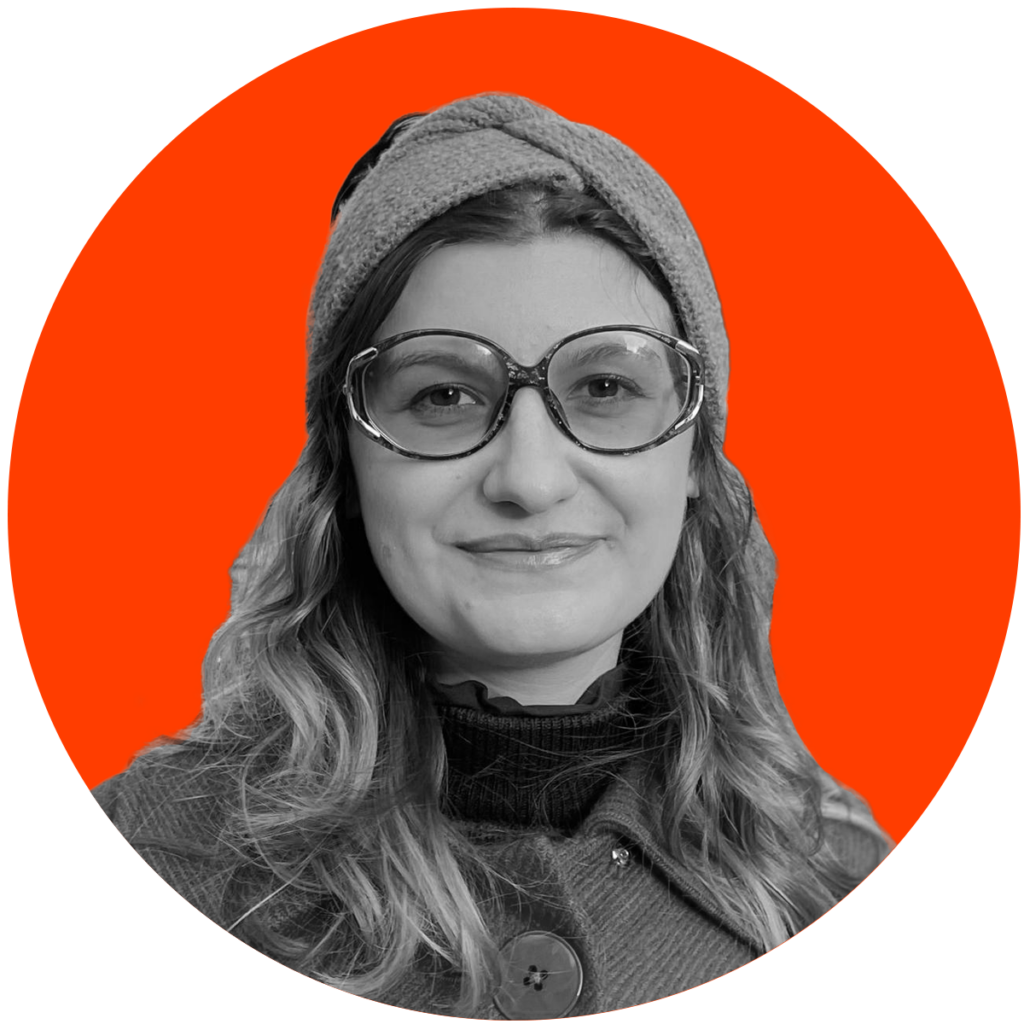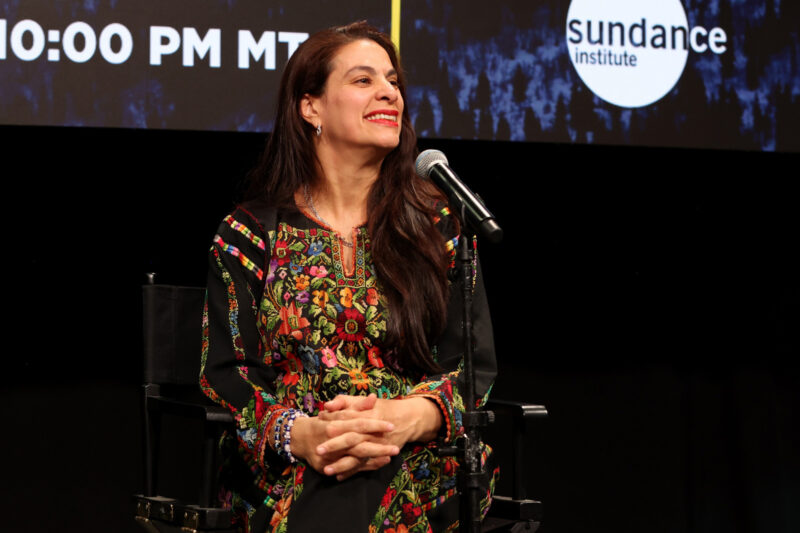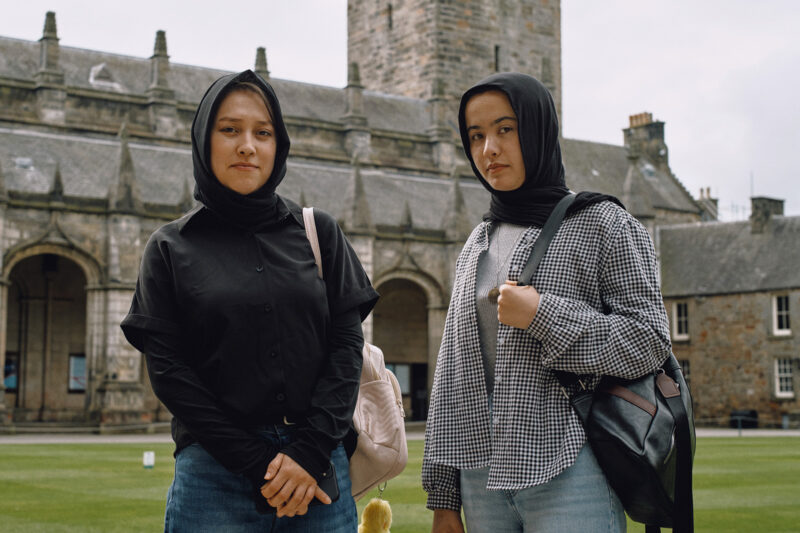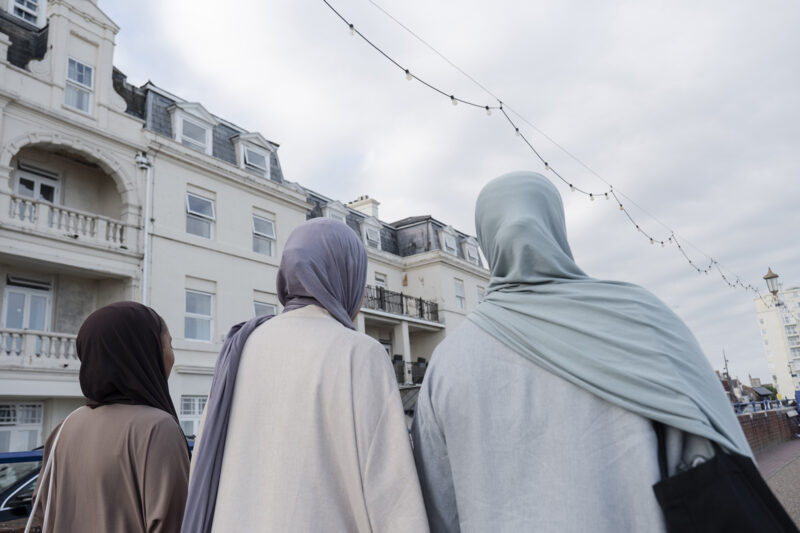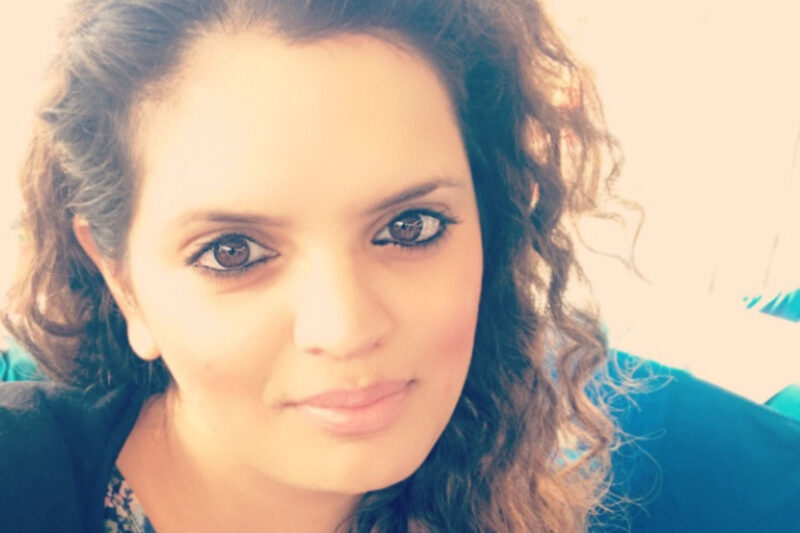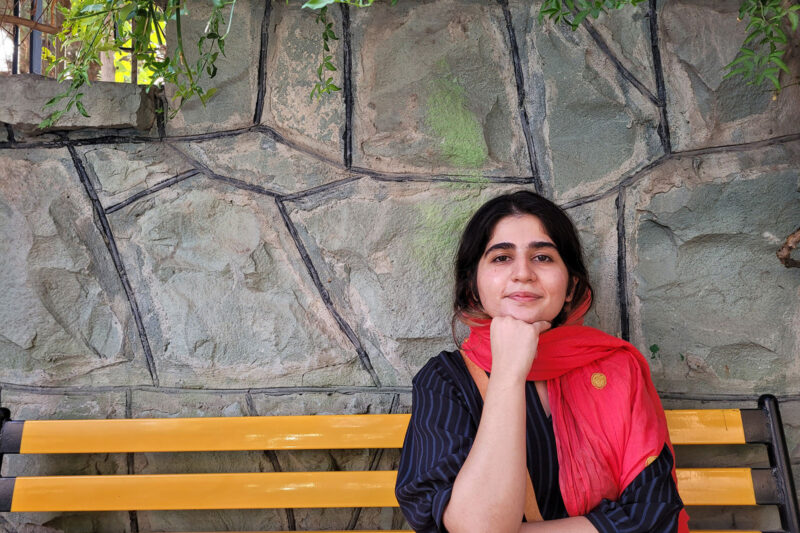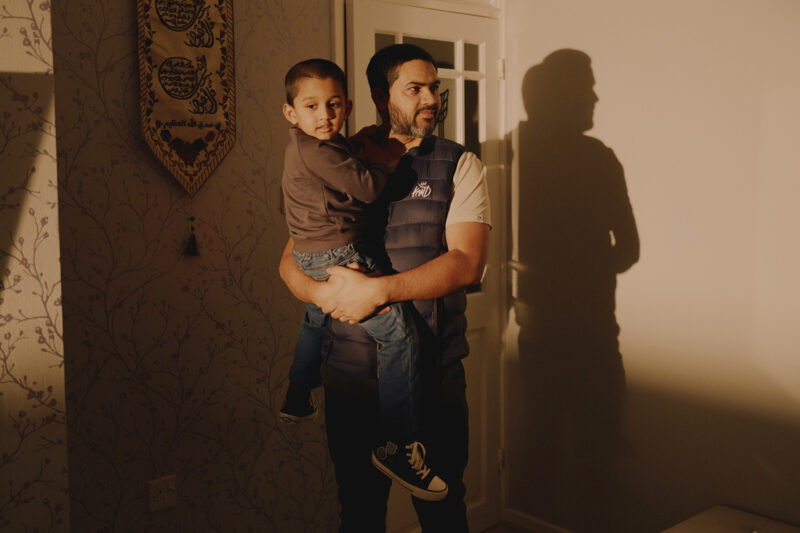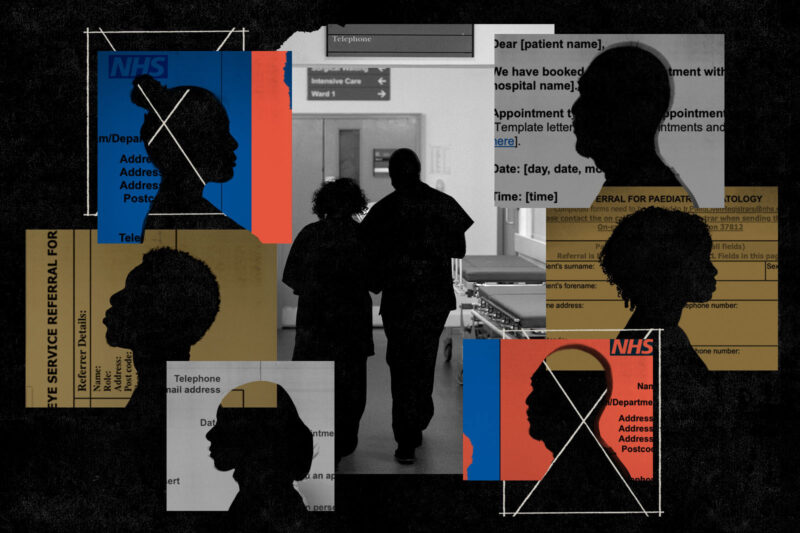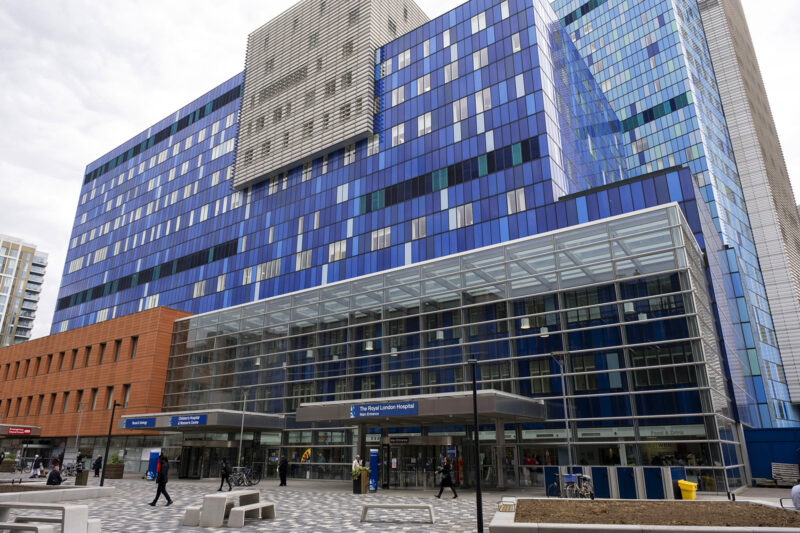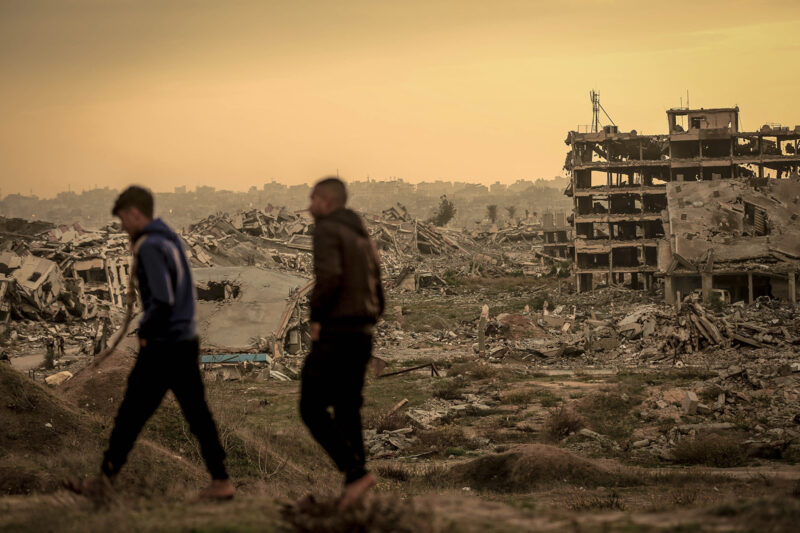The Muslims on the front line of America’s abortion clampdown
Often shut out of discussions about abortion, Muslim-led groups such as the Ad’iyah Collective and Heart are fighting the erosion of reproductive rights
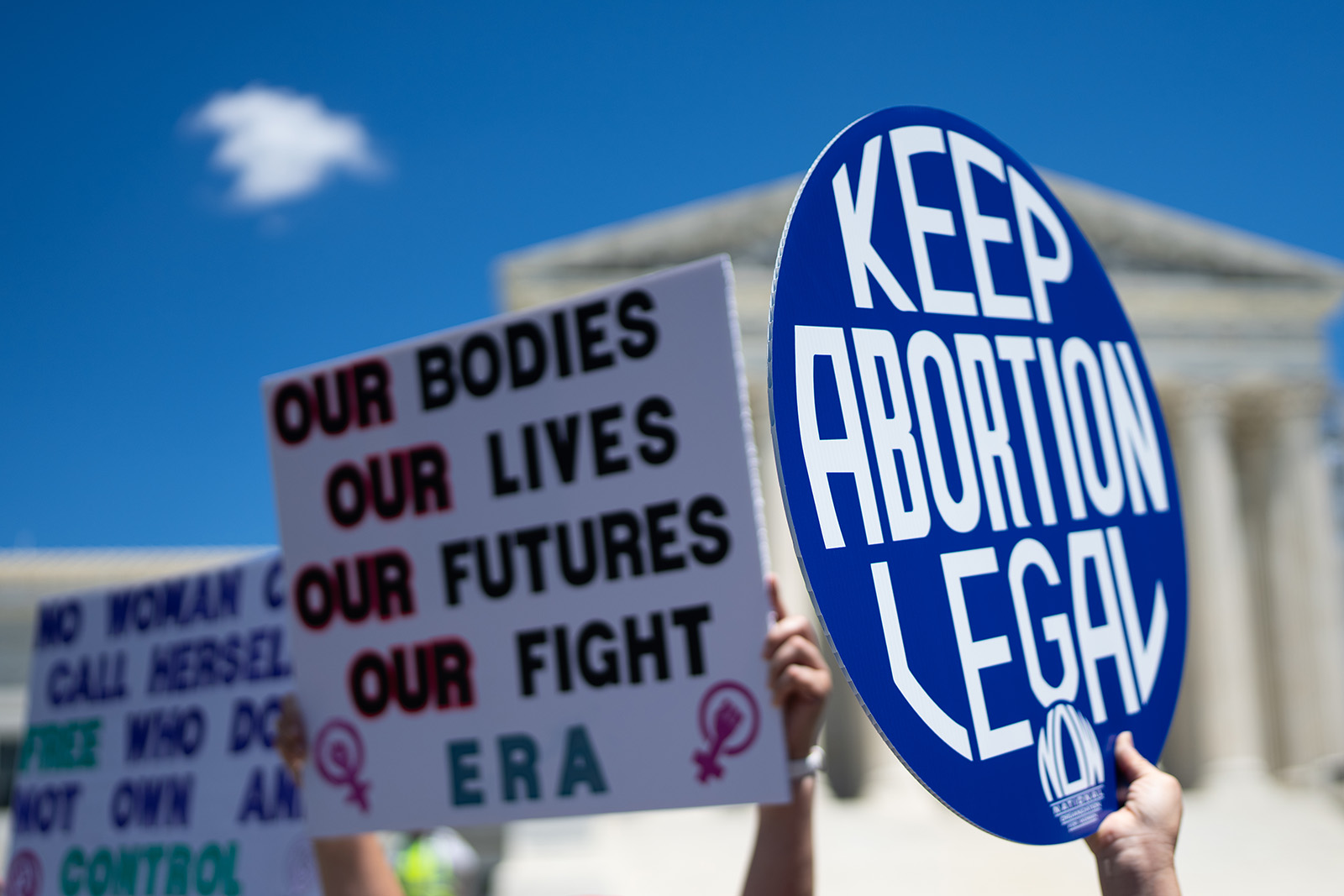
“A lot of the conversation about abortion access here in the US is steeped in Christianity,” says Ja’Loni, an abortion doula working in Georgia. “Even when pro-choice initiatives are presented as targeting faith-based communities, it sort of defaults to Christianity.”
Ja’Loni avoids sharing their full name online due to the nature of their work. They are part of the Ad’iyah Collective — a group that, for the past two years, has been helping Muslim Americans access their “divine right to bodily autonomy” while abortion rights are dramatically rolled back.
Since the repeal in June 2022 of Roe v Wade — the landmark 1973 supreme court ruling that abortion was a constitutional right — 17 out of the 50 American states have banned the procedure or restricted access to those in the first six weeks of pregnancy. This means that close to 124 million Americans live in a state where abortion is effectively inaccessible, including 824,000 Muslims.
Ja’Loni accuses the US of hypocrisy when it comes to reproductive rights. “On the one hand, the west frames Muslims and Islam as inherently misogynistic and anti-abortion,” they say. “Then, when members of this community want to exercise our reproductive freedom in the United States, for example, Muslims can’t find culturally competent reproductive care providers and many of us live in regions where abortion specifically is not accessible.”
The law in Georgia prohibits abortions beyond six weeks, earlier than many people realise they are pregnant. Those who need to terminate a pregnancy are then left relying on their own research and resources to access the procedure through medication or by travelling out of state. This is where Ja’Loni steps in.
“I offer help on every step of the way, from the moment a person finds out they are pregnant to aftercare and support after the procedure,” Ja’Loni says. “But people come with different needs. Some need information; others are looking for emotional support. Sometimes it is just being on a call with someone because they don’t have anyone close to them that they can turn to.”
Some clients, says Ja’Loni, call back months after the procedure to ask about contraceptive options or to share health concerns.
“I hear from people from all sorts of backgrounds, but many turn to me because they know I am Muslim,” they add. “Even if they don’t have specific religious questions, I think they appreciate that they can speak to another Muslim person who understands them like this.”
Maya, who is using a pseudonym, found out six months after Roe was struck down that her foetus had a rare chromosomal condition and would not survive outside the womb. “I felt alone,” she says. “The doctors in Texas told me that my pregnancy was unviable, but that was it.”
They told her only that she could travel out of state to get an abortion: “I had to do all the research myself.”
Maya was disappointed when a near-total abortion ban came into effect in Texas as a consequence of Roe v Wade’s repeal, but did not expect that the law would affect her so directly. She and her husband were planning to start a family and she did not think she would need a termination.
“Whether in the Muslim community or just in general, women don’t really talk about pregnancy loss and you kind of think that it’s very rare,” Maya says. “I didn’t know how common it is until I went through it myself.”
Nonetheless, Maya considers herself lucky. With a supportive husband and parents who live in California, a state with more liberal abortion law, she felt confident about scheduling an abortion in Berkeley — though things went far from smoothly.
Firstly, Maya’s health insurance would not cover a procedure in a different state, meaning she had to pay out of her own pocket. Secondly, as a result, the hospital refused to give her a general anaesthetic.
“I said I would pay for it, but the hospital said they only provide general anaesthesia on insurance,” she recalls. “In the end, I had local anaesthetic — I did not feel any pain, but I was still conscious of everything that was going on. It was obviously more traumatic than it needed to be for an already traumatic experience.”
The cost of accessing abortion privately in the US varies. While in the first trimester, abortion medication can be accessed through Planned Parenthood, a non-profit organisation and the largest abortion provider in America, for around $500, abortion later on in pregnancy can cost upwards of $1,000.
‘The stigma that is attached to faith with regard to being anti-abortion is misplaced’
Health, Education, Advocacy, Research and Training (Heart), a Muslim reproductive rights organisation, has recently launched a Reproductive Justice Fund to help abortion seekers meet the costs of abortion care.
“We have been supporting abortion seekers through our existing mutual aid funds for years, but Roe v Wade being overturned really kicked us into gear to think about it more holistically,” says Sahar Pirzada, Heart’s director of movement building.
The new fund offers financial support not only for covering the costs of medical procedures, including abortion, but also for other associated costs such as travel and childcare. “We try to think about, in an expansive way, what those barriers could be for people to access sexual and reproductive health care,” she says.
Like other American Muslims working in reproductive rights, Pirzada is frustrated by the way religion is framed in public discussion of the subject.
“Unfortunately, I will say white Christian supremacy and nationalism is a driving force of some of the restrictions that we see in a legal sense,” she says. “But I do think that the stigma that is attached to faith with regard to being anti-abortion is misplaced.
“I think anything can be used as a weapon and anything can be used as a tool for empowerment. We, Muslims working at Heart, are trying to shift that narrative and show that faith can and should be used as a tool of empowerment and accessing your sexual and reproductive wellness.
“We always say that God has entrusted us with our bodies to make our own reproductive decisions. And it’s time that we start equipping Muslims to believe that at their core and provide them with what they need to embody that.”
She stresses, though, that Muslims are not a monolith, and have different views on abortion. “I think in the past five years we have seen increased polarisation within the Muslim community,” she says.
According to a 2022 poll by the Institute for Social Policy and Understanding, a research organisation with a focus on Muslim Americans, 56% of American Muslims believe that abortion should be legal in all or most cases. In recent years, however, some Muslims have been attracted to the socially conservative policies promoted by the Republican party under Donald Trump. Others feel that the American abortion debate, stuck between binary pro- and anti-abortion positions, fails to accommodate nuanced Muslim views.
While Islamic scholars hold different opinions on abortion, many schools of thought view it as permissible within the first 120 days of pregnancy – about 17 weeks – while others consider it acceptable only in very narrow circumstances.
“There are times where people ask me about Islam’s opinion on abortion,” says Seher Siddiqee, a chaplain working with Heart. “And I always say: ‘Islam doesn’t have an opinion. It’s not a person.’ But I’m able to help connect people with scholars who have training in the field and can offer guidance or rulings on a particular issue.”
Maya reckoned with her own faith before contacting medical professionals. “I knew the point at which a child is imbued with a soul in Islam and, at 14 weeks, I was prior to that point,” she says. “I also knew what the outcome of the pregnancy would be. With these two pieces of information, I felt comfortable making a decision.”
She, too, feels that Muslims’ views have been sidelined. “I don’t think it’s fair to say that all Muslims do this or all Christians do that,” she says. “But I don’t feel like the current abortion debate makes space for different religious perspectives at all.
“In Islam, abortions is permitted under certain conditions. I feel that the abortion bans disregard my religious beliefs and my right to hold religious beliefs. It is infuriating.”
 Newsletter
Newsletter

